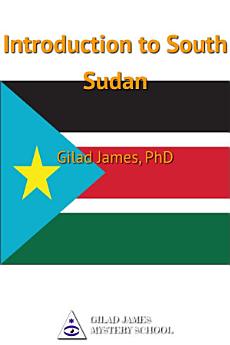Introduction to South Sudan
Gilad James Mystery School
ইবুক
121
পৃষ্ঠা
family_home
যোগ্য
info
reportমূল্যাংকন আৰু পৰ্যালোচনা সত্যাপন কৰা হোৱা নাই অধিক জানক
এই ইবুকখনৰ বিষয়ে
South Sudan is a country located in East-Central Africa. It is the newest country in the world, gaining its independence from Sudan in 2011. The country has a population of about 11 million people, with over 60 tribes, the largest of which are the Dinka, Nuer, and Shilluk. The official languages are English and Arabic, but there are over 60 indigenous languages spoken throughout the country. South Sudan faces significant challenges, including civil war, poverty, and underdevelopment. The country has experienced conflict and instability since gaining independence, with ongoing ethnic tensions and disputes over resources. The majority of the population lives in poverty, with limited access to basic services such as healthcare and education. Despite these challenges, South Sudan has a rich cultural heritage and is home to diverse ethnic groups, languages, and traditional customs. Efforts are being made to develop the country's infrastructure and economy, but progress has been slow due to ongoing conflict and political instability.
এই ইবুকখনক মূল্যাংকন কৰক
আমাক আপোনাৰ মতামত জনাওক।
পঢ়াৰ নির্দেশাৱলী
স্মাৰ্টফ’ন আৰু টেবলেট
Android আৰু iPad/iPhoneৰ বাবে Google Play Books এপটো ইনষ্টল কৰক। ই স্বয়ংক্রিয়ভাৱে আপোনাৰ একাউণ্টৰ সৈতে ছিংক হয় আৰু আপুনি য'তে নাথাকক ত'তেই কোনো অডিঅ'বুক অনলাইন বা অফলাইনত শুনিবলৈ সুবিধা দিয়ে।
লেপটপ আৰু কম্পিউটাৰ
আপুনি কম্পিউটাৰৰ ৱেব ব্রাউজাৰ ব্যৱহাৰ কৰি Google Playত কিনা অডিঅ'বুকসমূহ শুনিব পাৰে।
ই-ৰীডাৰ আৰু অন্য ডিভাইচ
Kobo eReadersৰ দৰে ই-চিয়াঁহীৰ ডিভাইচসমূহত পঢ়িবলৈ, আপুনি এটা ফাইল ডাউনল’ড কৰি সেইটো আপোনাৰ ডিভাইচলৈ স্থানান্তৰণ কৰিব লাগিব। সমৰ্থিত ই-ৰিডাৰলৈ ফাইলটো কেনেকৈ স্থানান্তৰ কৰিব জানিবলৈ সহায় কেন্দ্ৰত থকা সবিশেষ নিৰ্দেশাৱলী চাওক।








